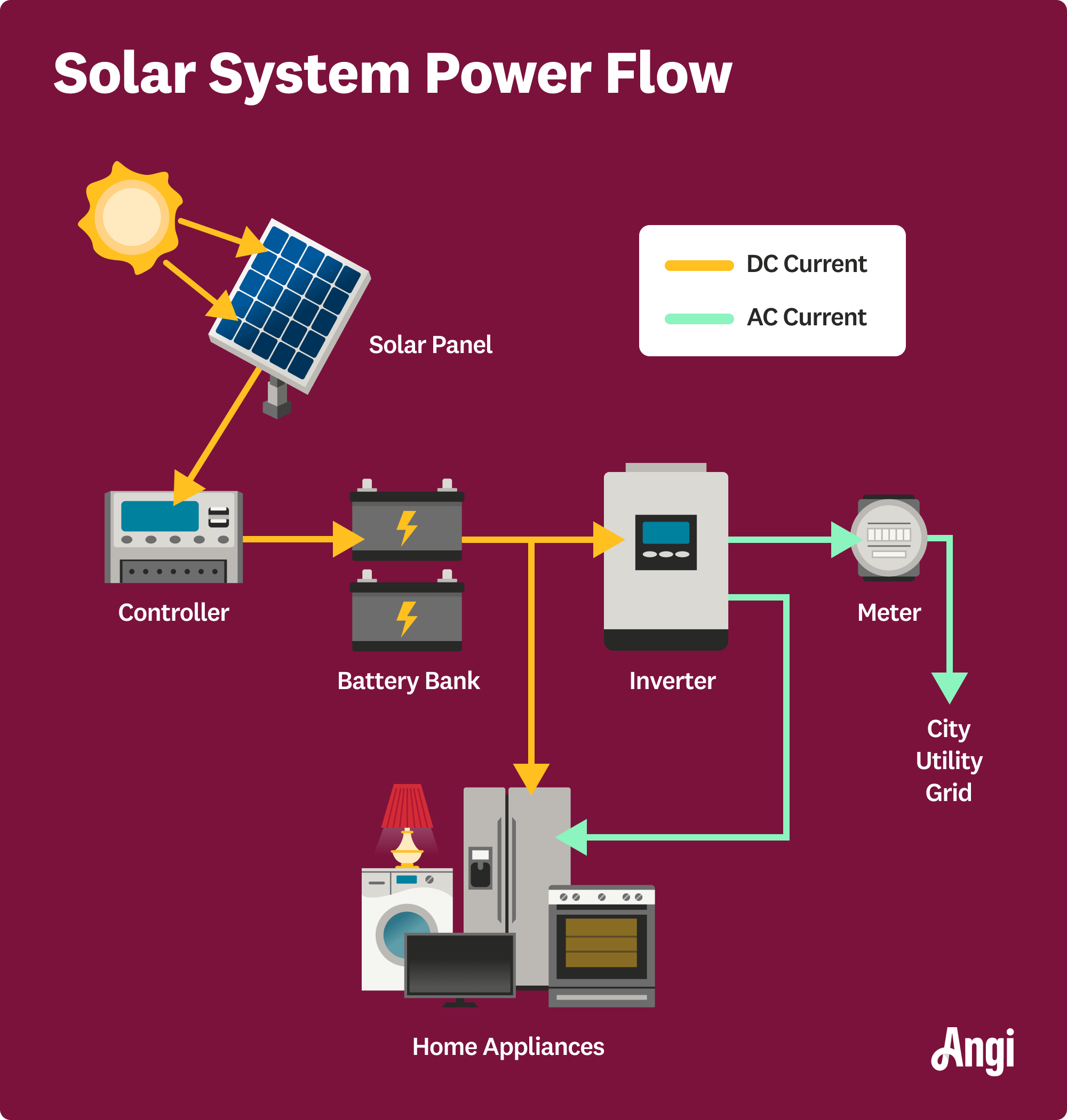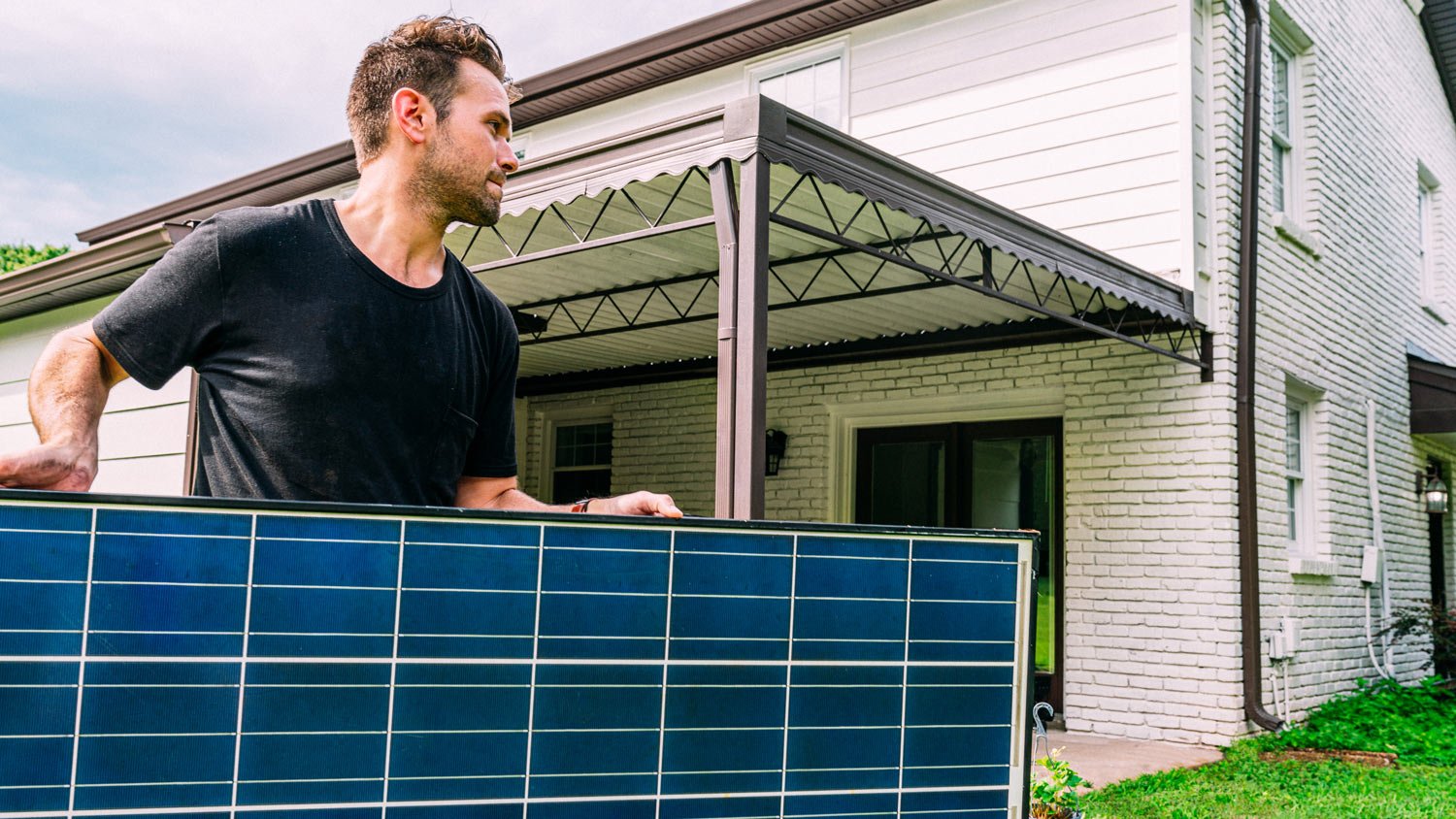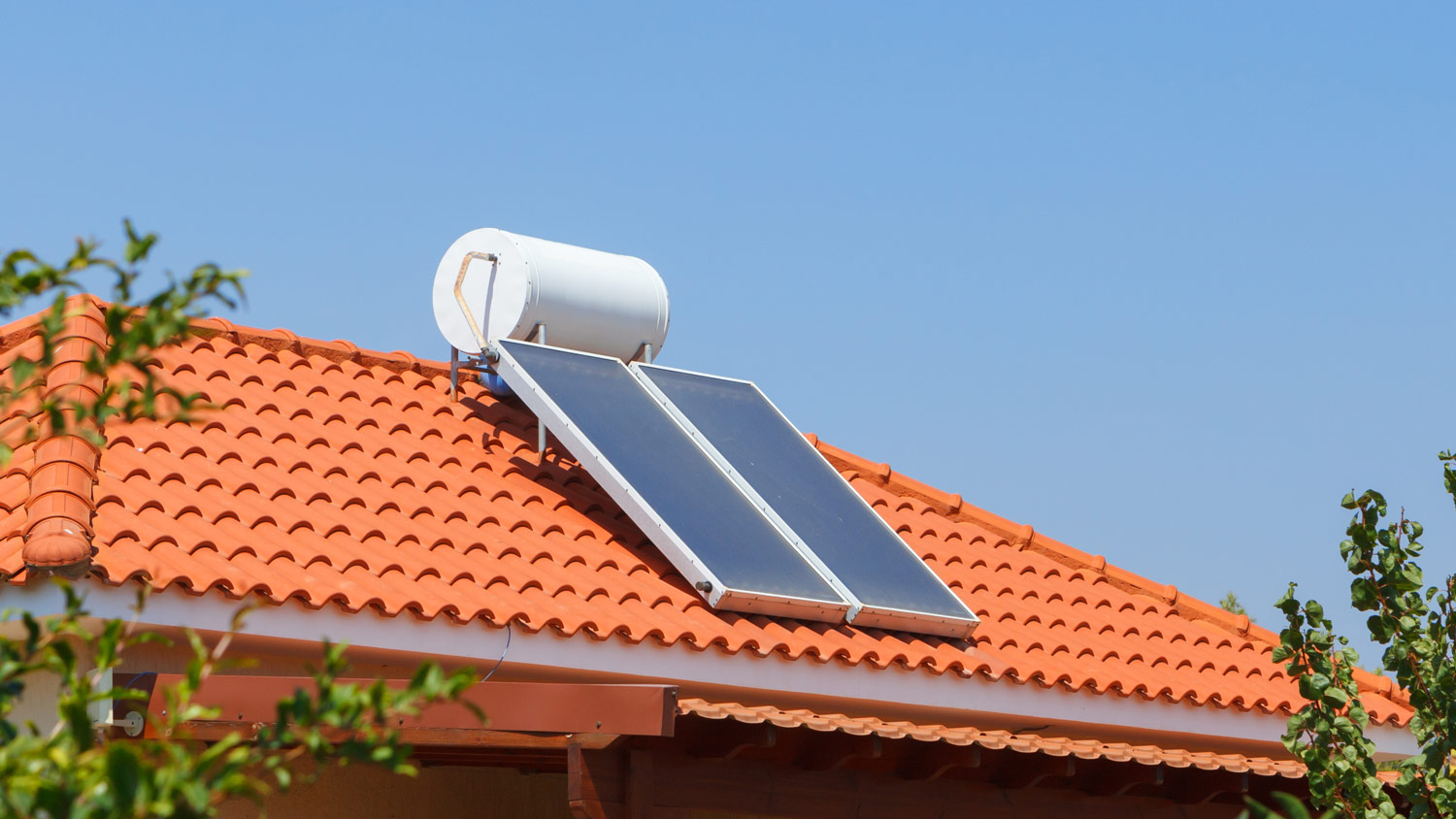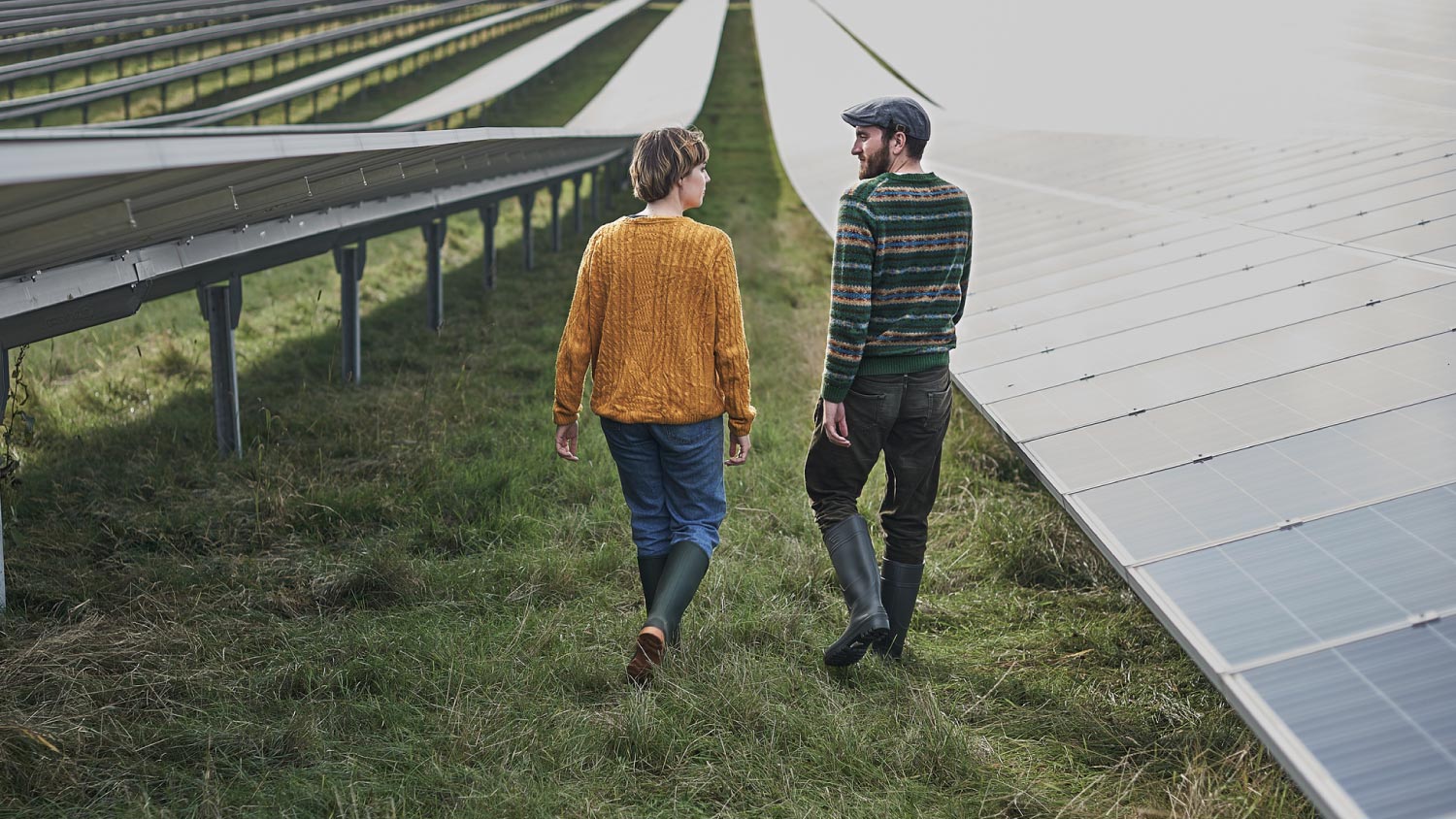
Solar battery costs depend on the size of your system, labor, and capacity. Learn how much you could pay for batteries for home solar systems.
Your guide to making watts while the sun’s hot


Most solar panel systems don’t have batteries and rely on grid power at night.
No-battery solar systems are less expensive and easier to install and maintain.
Grid-tied homes will have power at night, and net metering can offset electricity costs.
No solar battery or grid power means no power at night or on cloudy days.
You’ll need solar panels, inverters, and charge controllers for safe solar power without a battery.
If you want power from your solar panel system when the sun isn’t shining, you’ll need a solar battery. But to enjoy solar power on demand, here are strategies to let the sun work for you in real time. Read on to explore why and how to use solar panels directly without a battery.
You might be surprised to learn that most solar panel systems don’t have batteries. Instead, grid-tied systems without batteries produce and use their own power during daylight hours. At night and during cloudy days, they use power from the grid.
In states with net energy metering, residential solar panel systems earn credit for sending extra energy back to the local utility. Those credits offset the cost of energy from the grid. While systems without batteries aren’t as efficient, the up-front costs are less. If your solar contractor does the calculations correctly, it’s possible to offset most or all electricity costs with net metering.

Solar panels convert sunlight into direct current (DC) electricity, but most homes use alternating current (AC) power. Solar panel inverters do the work of converting DC to AC power. Systems without batteries use the power generated by solar panels in real time. However, they still need inverters to convert the DC power from the solar panels into AC power for immediate use.
While solar batteries offer freedom from expensive grid power, having a solar system without batteries has upsides, too. Here, we compare the pros and cons of going battery-free. A solar panel installer near you can discuss your specific setup and whether a solar battery is right for you.
| Pros | Cons |
|---|---|
| No battery costs | No energy storage |
| Easier to install and maintain | Needs to be grid-tied for consistent power |
| Grid-tied systems will still draw power | Power is limited to daylight hours |
| Net metering pays you for power, if available | Power is unavailable during power outages |
| Net metering isn’t available in all locations |
Solar batteries are an extra cost on top of the significant investment in a solar panel system. Most homeowners spend between $6,000 and $12,000 on the cost of a solar battery. Not buying a battery will save you cash up front.
Besides that, your system will be easier and less expensive to install and maintain. Since solar panels last 25 to 30 years, while solar batteries last 5 to 15 years, you’ll avoid the cost of replacing those batteries at least once before the rest of your system needs replacing.
You can draw power from the grid when your panels aren’t producing enough. If you can link into net metering, you can treat the power utility like a free, off-site battery. As long as you put in more than you take out, net-metering credits will offset energy costs, and you can save money without investing in your own battery.
While it might be tempting to say goodbye to the middleman—your solar battery—think twice before you say hello to direct power.
First, you won’t have energy storage. So all that solar power your panels generate will get used right away, go back into the grid (if you’re tied in), or go to waste. Your house must be tied to the grid for consistent power and electricity on darker days and at night; however, you won’t have power during grid outages unless they happen during the day when your solar panels are working. You’ll also have to use the grid during peak times, which is more expensive if you have time-of-use rates.
Net metering helps offset electricity costs, but it isn’t available everywhere, and policies vary by state, regions, and utility providers. For example, some utilities offer buy-back rates to customers who send extra energy to the grid, but those rates are often lower than the price of electricity. So do the research and the math before going batteryless and expecting to recoup the costs with net metering.
If you live in a colder climate, you’ll also need to consider how solar panels work in the winter when days are shorter and snow can get in the way. It might be worth it to invest in a solar battery if you need more power on hand from your panels.

No batteries, no problem. Here’s what you need to power your day with pure solar energy:
Solar panels: Generate solar power
Solar inverter: Converts DC power into AC power
Charge controller (optional): Helps regulate voltage and prevents overloading devices
Connection to the grid (optional): Ensures continuous power even when the sun isn’t out and is necessary for net metering
Keep it simple and sunny. Here are our best tips for how to increase solar power efficiency when going battery-free with solar panels:
Plan energy-intensive activities like running washers and dryers, dishwashers, and charging devices during sunny daylight hours. This will use energy during peak production.
Install a power usage monitor to track when energy consumption is highest and adjust your habits to align with peak solar output.
Position panels for maximum sunlight exposure.
Location matters. Research whether it’s best to put solar panels on the ground versus the roof.
From average costs to expert advice, get all the answers you need to get your job done.

Solar battery costs depend on the size of your system, labor, and capacity. Learn how much you could pay for batteries for home solar systems.

Get a clear estimate for solar water heater repair cost. Learn what impacts pricing and how to budget for your solar water heater repair.

Get a detailed estimate of solar farm costs. Learn about average prices, key cost factors, and ways to save when planning your solar farm project.

Want to know how to clean snow off solar panels? Be safe and gentle, but don’t underestimate the sun’s ability to melt away your snowy problems.

Avoid underpowered solar batteries and wasted money. From daily energy use to depth of discharge, this guide explains how to size a battery for solar panels.

Most solar panel installations require a pro, but you can still learn how to install solar panels. Read this guide to install solar panels like a pro.